In Person, Face to Face Rules
Our Monday evening women and non-binary nights have been going completely in-person, removing our hybrid component (it felt too much like surveillance and made interactions in the space awkward). We also ditched presenting on slides and having everyone stare raptly with laptops in hand.
We’ve just been going by on pure whiteboarding lately, which has been awesome! Two huge blank whiteboards, people sitting around close to each other, screens turned off most of the time. We often just use a flat tablet open once in a while when we need to look things up.
It has had nice results: people are more engaged, we collaborate more, and it feels like more voices are heard! We also find our discussions getting way more creative and interesting as more people with diverse points of view are able to chime in.
I still have a lot of notes that I haven’t posted yet, especially from the Algebraic Data Types in Rust session with Jade, but I’ll start with last week’s talk Swift and Rust, why we love them!
Swift and Rust Whiteboarding
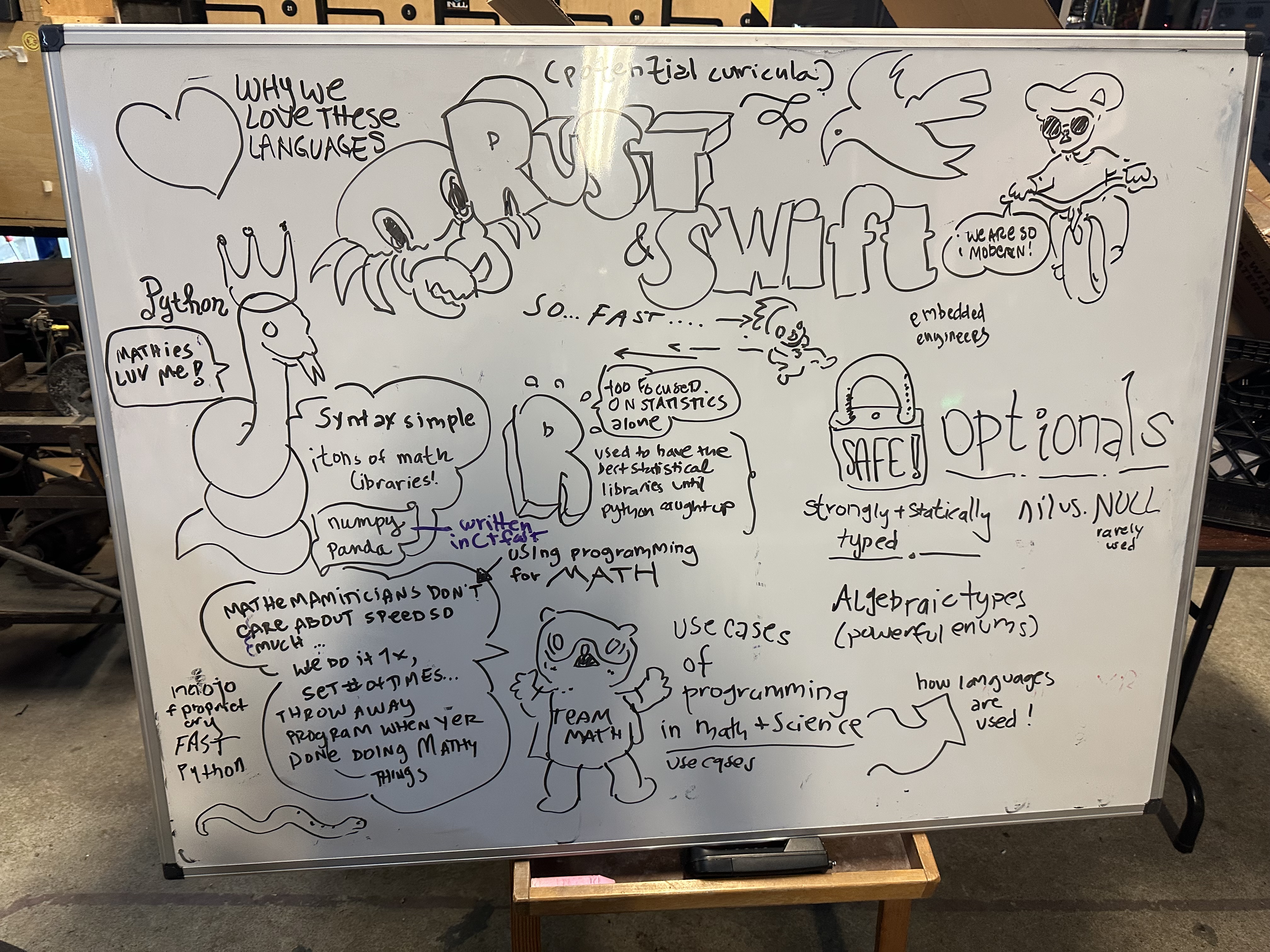
The whiteboard is such a cool conduit for discussion. I started out with the typical platitudes: Rust and Swift are both open source, they both have an amazing and passionate community, they’re modern and beautiful to read, and both go all in on safety and security, preventing crashes with data types such as optionals. They’re both fast too!
It is a little hard to proselytize (if that’s the right word) unless you’re actually using the language. So we went into different folks’ interests: We had embedded and mathematician folks present, so we just started asking them why they used programming.
One mathematician in school said she used programming as a way to do math proofs. We visited her most useful language python, with all its great math libraries like numpy and pandas. The syntax is easy to understand too and often looks like pseudocode.
o what if python isn’t the most efficient language out there?
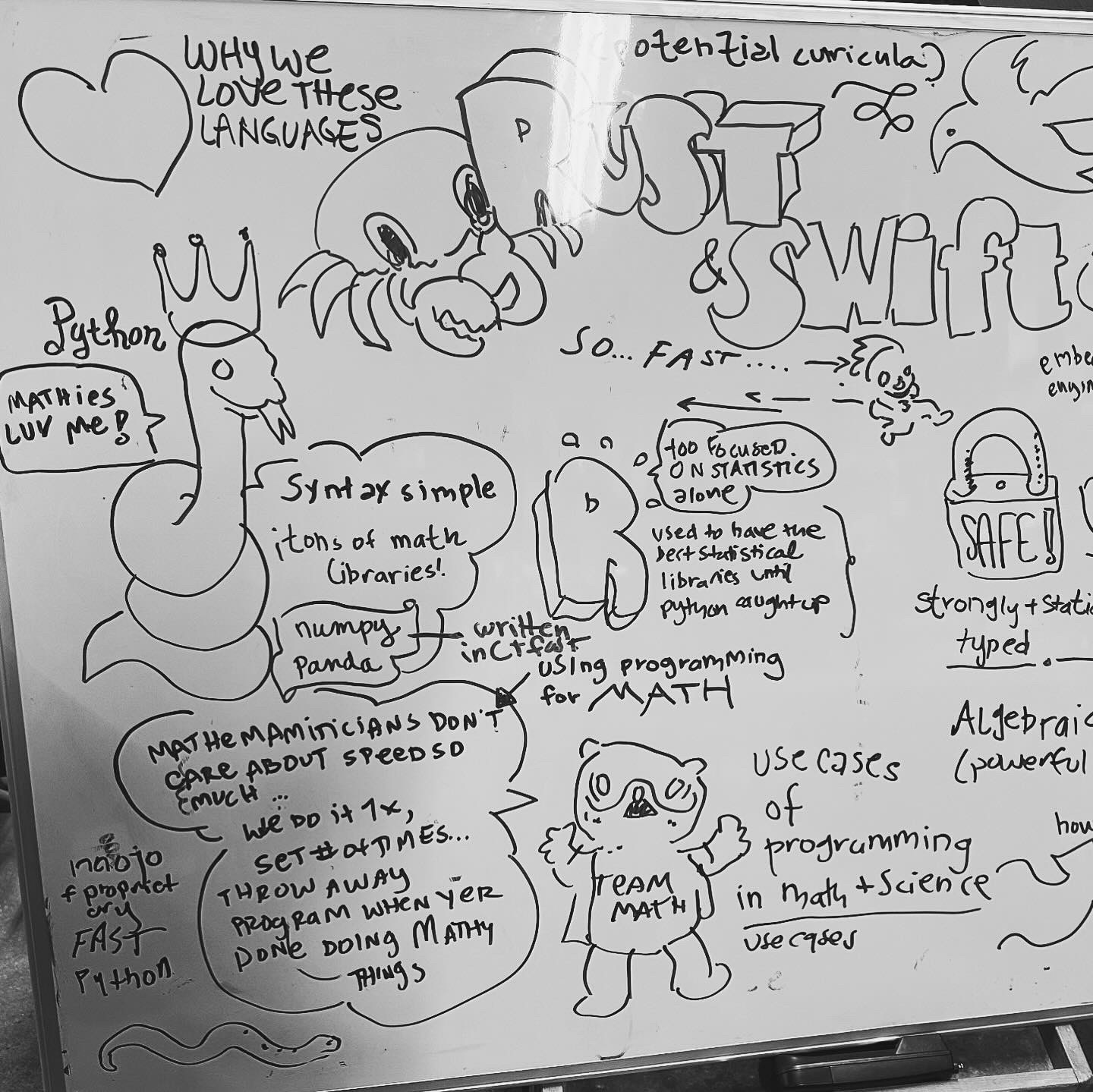
“Mathematicians don’t care about speed so much… we do it once, a set number of times, and often throw away our programs when we’re done doing “math” things,” team math reported.
Embedded participant chimed in, “Yeah python isn’t statically typed, and it isn’t super fast… but there is some super secret super fast project called mojo.”
“And pandas and numpy are written in C!” team math said. “What reason would there be for me to try out Rust and Swift?”
Computational Math in Rust and Swift
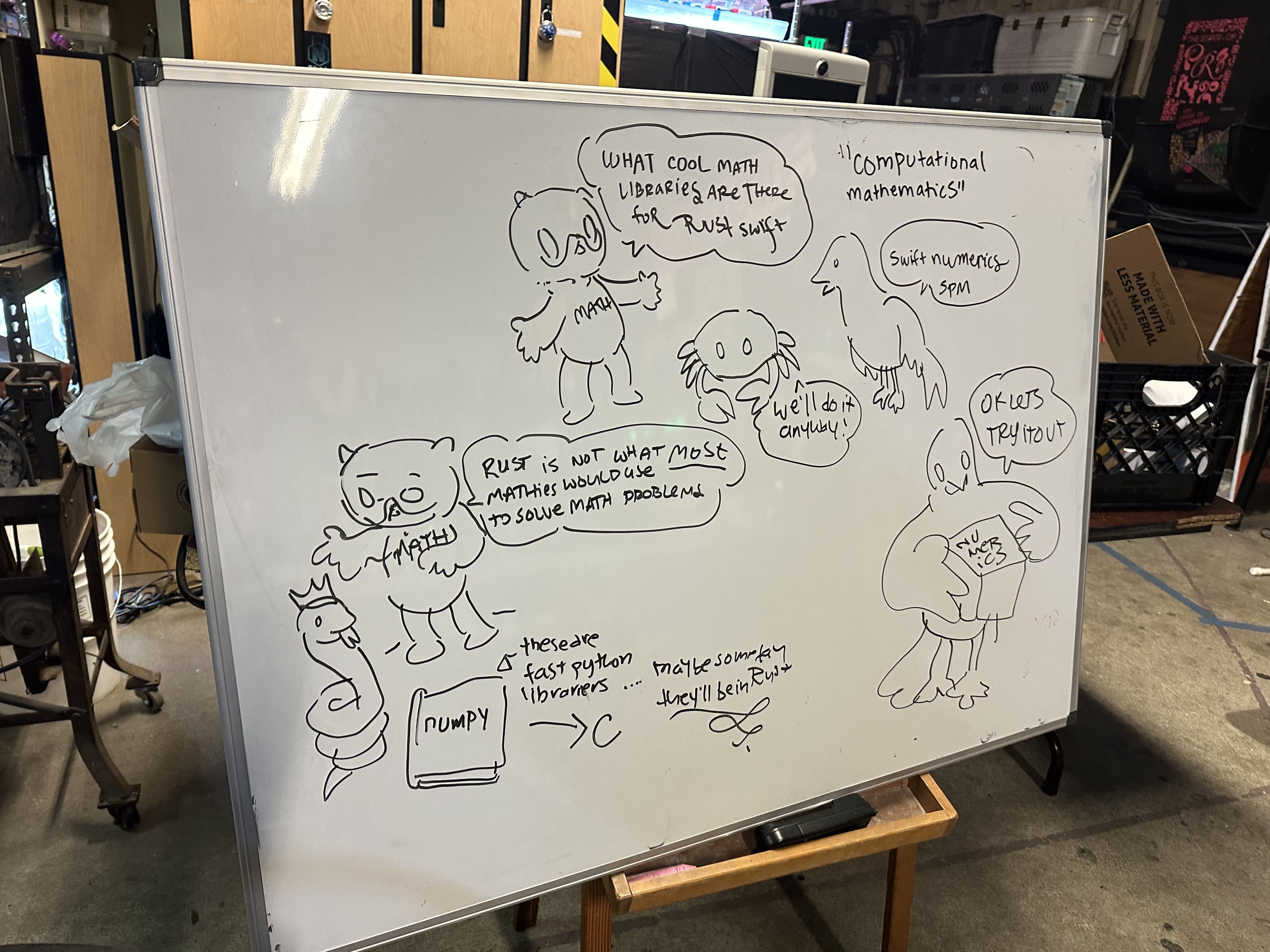
“Hmm, what cool math libraries are there for Rust and Swift?”
“Rust is too picky for a lot of mathematicians. And it seems like the wrong choice for the job… but hey! there are some crazy folks who will do most anything, there are probably crates that do all the math anyway!”
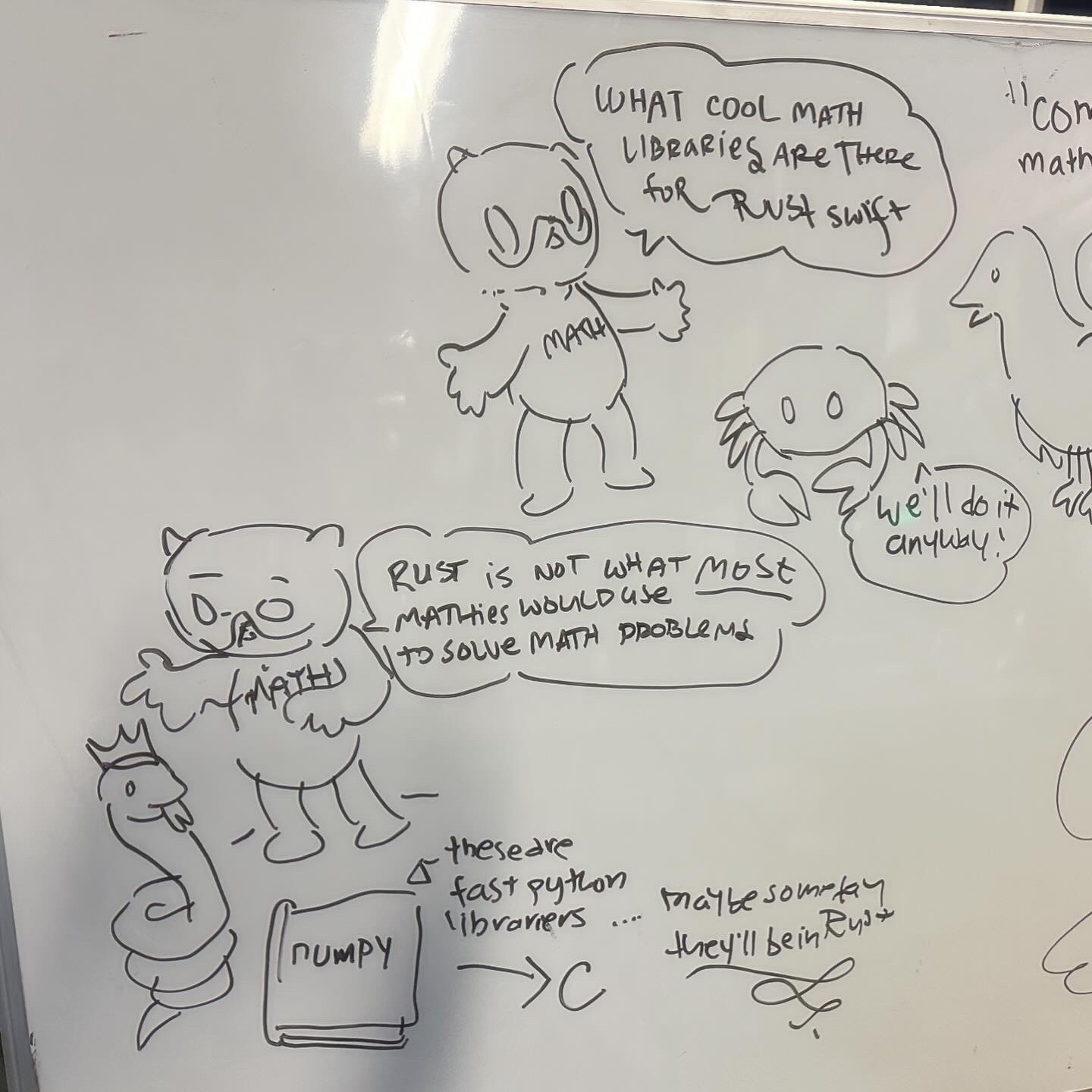
We goth Team Math to check out the crates and more of Rust itself.
“Hmm, if Rust is a systems language, do you think that someday the numpy libraries that are in C will someday be written in Rust?”
“Maybe!”
We also checked out Swift, which has a great numerics open-source package. Perhaps the topic of another Women and Non-binary night presentation!
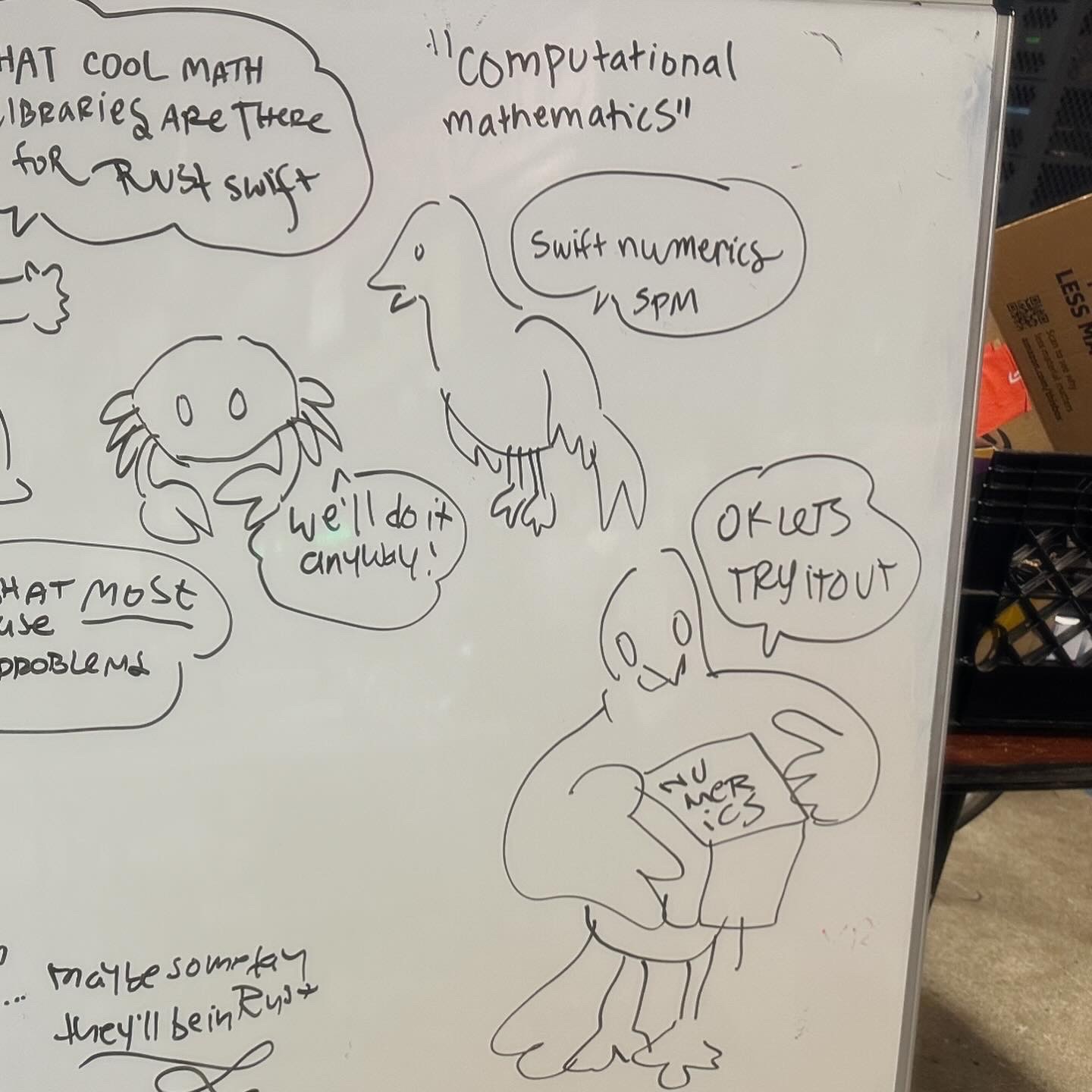
Poor but Sexy Women & Non-Binary Night
All in all a great night. I guess SudoRoom is poor but sexy, as we do not spend a lot of time doing business networking or providing fancy free meals, but I would like to think that we fill a nice gap for women in tech in the Bay Area.
In-person meetups with passionate people of diverse backgrounds are fun, and I think most of us are burned out on hybrid and remote meetups after years of COVID. Whiteboarding just isn’t the same online, and there’s something to be said for being in Oakland, a rich place of creativity and surrounded by hardware hacking robots.
Rabbit Holes
- Rust User Community: Can Rust, one day, unify the math design and processing languages?
- Swift Numerics package (it’s like a Rust Crate) – https://github.com/apple/swift-numerics
- Check out our Women & Non-Binary night – https://sudoroom.org/women-non-binary-hack-night/ and follow us on https://lu.ma/sudoroom to sign up!
